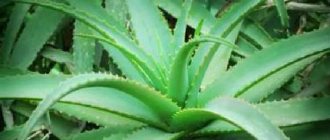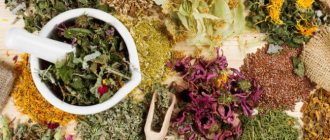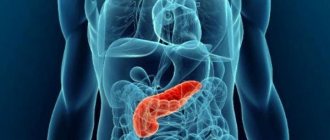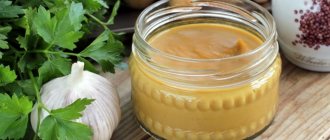After all, few of us can boast that we eat small meals, have no idea about fast food, exercise regularly and live stress-free lives. But all this can negatively affect the health of the stomach and intestines, cause diarrhea or constipation, as well as damage the liver and cause problems with the gallbladder. Medicinal plants will help in the treatment of all these diseases.
The expert of the issue is a teacher at the Pyatigorsk Pharmaceutical Academy, Doctor of Biological Sciences, Professor Valery Melik-Guseinov .
Gastritis with low acidity
Cumin
The medicinal raw material is the fruits of cumin, which are harvested along with the grass when the stems and umbels of the plant become brown in color. After drying, the collected raw materials are threshed and the fruits are cleaned.
Cumin preparations stimulate the secretion of glands of the digestive tract, increase intestinal tone, reduce the processes of putrefaction and fermentation (carminative effect). Cumin fruits are used to treat diseases of the gastrointestinal tract, intestinal atony, and flatulence. Cumin is included in carminative, gastric, appetizing and other herbs.
Recipe
The infusion is prepared at the rate of 2–3 teaspoons of cumin per glass of boiling water; take 2-3 tbsp. spoons (children 1 teaspoon) 5-6 times a day before meals.
Cumin: properties, benefits and medicinal uses Read more
Green onion, chopped
The bulbs of the plant and its juice are used.
Preparations prepared from onions enhance the motor and secretory functions of the gastrointestinal tract and have an anthelmintic effect.
Onions in large doses are contraindicated for diseases of the kidneys, liver, and heart. The plant may irritate the gastrointestinal tract, liver and kidneys. Onions are included in the diet carefully, starting with small amounts.
Recipe
Fresh onions are added to food for gastritis with low acidity of gastric juice.
Rosemary officinalis
They use leafy twigs and leaves that are collected during flowering.
Rosemary preparations stimulate digestion and have a choleretic effect. Rosemary is used for dyspepsia and gastrointestinal disorders. Plant preparations are contraindicated for hypertension; rosemary is used with caution for stomach ulcers.
Recipe
The infusion is prepared at the rate of 2 teaspoons of crushed leaves per glass of boiled water (daily dose); take 50–60 ml of infusion 3 times a day.
How can rosemary, tansy and lemon balm help relieve headaches? More details
Three-leaf watch
Leaves are harvested during flowering, cut off at the base of the blade (without petioles), and dried outdoors in the shade.
Watch medications stimulate appetite, increase gastric secretion, improve digestion, have a choleretic effect, and enhance metabolism.
Recipes
An infusion (hot) is prepared at the rate of 5 g of crushed leaves per 1 glass of boiling water. Take ¼ cup 4 times a day before meals.
An infusion (cold) is prepared at the rate of ½ teaspoon of leaves per 2 cups of cold water. Leave for 8 hours. Take ½ glass 2-4 times a day ½ hour before meals.
Common beans
Bean seeds are used.
Beans enhance the secretion of gastric juice. Due to the high content of potassium and other elements, beans are used in dietary nutrition for gastritis with reduced secretion. An infusion of bean leaves is also prescribed for chronic pancreatitis.
Recipe
The infusion is prepared at the rate of 2–3 tbsp. spoons of crushed dry bean pods per 0.5 liters of boiled water; Take in 3 doses 20–40 minutes before meals.
Common beans: properties, benefits and medicinal uses Read more
Prevention of gastrointestinal tract
Few people would like to suffer from unpleasant symptoms all the time, undergo painful examinations, take a bunch of medications and give up their favorite treats. You shouldn’t risk your health; it’s better to make adjustments to some aspects of life in advance than to suffer from chronic diseases later. Following simple preventive measures will help you avoid many health problems, regardless of age.
A set of preventive measures:
- proper nutrition. Before eating, be sure to wash your hands to prevent infections. Frequent meals consisting of several small portions will be beneficial. It is undesirable to skip meals, especially when it comes to breakfast;
- diet. It would be a good idea to reduce your consumption of smoked, fatty and fried foods. Dishes should not contain a lot of salt. You need to eat more fruits and vegetables, cereals, and fresh salads. When preparing food, you should limit the amount of vinegar and hot spices;
- Avoid snacking on the go. Lack of fluid in the body often causes constipation and provokes the appearance of thick bile. A person should consume at least 1.5 liters of liquid per day;
- don't overeat. You need to eat in moderation; the standard serving size is 350 ml. However, fasting is also harmful, so you should eat in an orderly manner. Regular eating at a certain time will help synchronize the motor activity of organs, normalize the secretion of digestive juices;
- to refuse from bad habits. Nicotine in any quantity negatively affects the digestive system, so you need to avoid it completely. Alcohol intake should be kept to a minimum. Low-quality products include various chemical elements, dyes, flavors, which as a result have a detrimental effect on the gastrointestinal tract;
- take more fermented milk products. Cottage cheese, kefir, yogurt, sour cream help improve the antitoxic ability of the liver, intestinal motility, and suppress putrefactive processes in the intestine;
- reduce consumption of coffee and carbonated drinks. The permissible amount of coffee per day is 350 ml in finished form. If you cannot completely eliminate carbonated drinks from your diet, it is advisable to drink no more than 250 ml per day.
It is also worth moving more, spending a lot of time in the fresh air, taking medications with caution, visiting doctors in a timely manner, and avoiding stressful situations.
Gastritis with high acidity
Common pumpkin
Pumpkin seeds are collected for medicinal purposes.
Pumpkin pulp improves the functioning of the gastrointestinal tract and promotes bile secretion. Pumpkin seeds have an anthelmintic effect. Pumpkin pulp increases diuresis. A number of authors believe that pumpkin pulp has an antiemetic effect during pregnancy.
Recipes
Pumpkin pulp is included in the diet for gastritis with high acidity, inflammation of the large intestine, constipation, gastric and duodenal ulcers.
For tapeworms, it is recommended to grind 300 g of peeled seeds with the preserved green shell in a mortar and then mix with 100 g of honey or jam; take on an empty stomach in small portions for an hour: after 3 hours, give a laxative, and then give an enema. For children, the dose is reduced: from 3 to 4 years old - 75 g of seeds, at 10 years old - 150 g.
Article on the topic
Gentian yellow: properties, benefits and medicinal uses
Gentian yellow
For medicinal purposes, the roots of yellow gentian are used, which are harvested in the fall.
Since ancient times, gentian roots have been used for diseases of the gastrointestinal tract: to stimulate appetite, improve digestion, eliminate persistent heartburn, dyspepsia, as well as for diseases of the liver and gall bladder (hepatitis, cholecystitis).
Recipes
The infusion is prepared at the rate of 1 teaspoon of crushed rhizomes with roots per 1 glass of boiling water; take ¹⁄³ glass 3 times a day before meals for diseases of the gastrointestinal tract.
Heartburn, even the most stubborn one, can be cured if before lunch you take 100 ml of wine, in which crushed rhizomes with gentian roots have been infused for 2 days.
For gastritis, the following recipe is recommended as a means to strengthen the stomach: gentian root powder - 300 g, baking soda - 700 g. The mixture is taken 0.5 g 3 times a day.
Gray blackberry
Juice and leaves are harvested in June–August, roots – in late autumn.
Blackberry leaves are used as an infusion or decoction for gastritis, diarrhea, dysentery and as an anthelmintic.
A decoction of blackberry roots is used for liver diseases and colitis.
Recipes
The infusion is prepared at the rate of 1 tbsp. a spoonful of crushed leaves per glass of boiling water; take ½ glass 3-4 times a day 20-30 minutes before meals.
A decoction of leaves or roots is prepared at the rate of 20 g of plant material per 1 glass of water; take 1-2 tbsp. spoons 3-4 times a day.
For catarrh of the stomach and intestines, the following composition is recommended: blackberry leaves - 2 teaspoons, calendula flowers - 1 teaspoon; The mixture is infused in a glass of boiling water and taken ½ glass 2 times a day 30 minutes before meals.
Gray blackberry: properties, benefits and medicinal uses Read more
Stomach and duodenal ulcers
Centaury small (red)
Flowering tops of stems and rosettes of basal leaves are used.
Centaury is used for peptic ulcers of the stomach and duodenum, for pancreatitis, diseases of the liver, and biliary tract. Plant preparations are also prescribed for dyspepsia, flatulence, and as an anthelmintic.
Recipes
Infusions are prepared in two ways.
1 tbsp. a spoonful of herbs is infused for half an hour in 1½ cups of boiling water. Strain and take 1 tbsp. spoon 30 minutes before meals.
1 teaspoon of dry herb is brewed for 10 minutes in 2 cups of boiling water, sweetening to taste. Take half a glass 30 minutes before meals.
Article on the topic
Common potatoes: properties, benefits and medicinal uses
Potatoes
They use fresh tuber juice, as well as grass and flowers.
Freshly prepared tuber juice is used in folk medicine as a remedy against heartburn, in the treatment of gastritis, gastric and duodenal ulcers. An extract from the herb of the plant has an antispasmodic effect on the intestinal muscles.
Recipe
Squeeze the juice from fresh fruits and take 1 tbsp. spoon before meals to relieve heartburn and treat peptic ulcers without exacerbation.
Calamus common
Calamus rhizomes are harvested in autumn or spring.
Calamus is used to improve appetite, digestion, and as a tonic. Calamus and preparations made from it are widely used for the treatment and prevention of gastrointestinal diseases; it is prescribed for gastritis with low acid-forming gastric juice, gastric and duodenal ulcers, hepatitis and cholecystitis.
Calamus is contraindicated during pregnancy. Use with caution in cases of low blood pressure and increased stomach acidity.
Recipes
An infusion for internal use is prepared at the rate of 1 tbsp. spoon for 2 cups of boiled water; The infusion is drunk in 3-4 doses 20-40 minutes before meals, warm.
For intestinal bloating, the following composition of the herbal collection is recommended: calamus rhizomes - 10 g, coriander fruits - 8 g, rhizomes with valerian roots - 10 g. All plants are crushed into powder and mixed. Take 1 teaspoon of powder per day with water.
Wine infusion is used as an antiemetic: 8 g of crushed rhizome per 1 liter of wine; take 20 ml of infusion before the gag reflex appears.
Calamus: properties, benefits and medicinal uses Read more
Liver and gallbladder diseases
Artichoke sativa
Inflorescences, leaves and roots are harvested. Leaves are collected during flowering, inflorescences - soon after flowering, roots - in autumn.
The plant increases the secretion of bile, reduces cholesterol and lipids in the blood. Artichoke preparations help with nausea, a feeling of heaviness, flatulence and pain caused by insufficient liver function.
Plant preparations are contraindicated in case of narrowing of the bile ducts or cholelithiasis. With prolonged use of artichoke preparations, diarrhea is possible.
Article on the topic
Artichoke sativa: properties, benefits and medicinal use
Recipes
The infusion is prepared at the rate of 1–2 tbsp. spoons of flowers per 1–2 cups of boiled water (daily dose); Take 3 times a day, 20–40 minutes before meals, warm.
For inflammation of the gallbladder, the following composition of herbs is recommended: immortelle flowers - 2 parts, centaury grass - 2 parts, calamus rhizome - 2 parts. 2 tbsp. spoons of the mixture are poured in the evening with two glasses of water, left overnight, and boiled for 5–7 minutes in the morning. Take on an empty stomach
1 glass, and the remaining amount during the day in 4 doses (each dose an hour after meals).
Sandy immortelle
Immortelle flowers are harvested at the beginning of flowering before the side baskets open.
Immortelle has a pronounced therapeutic effect for diseases of the liver, gall bladder and biliary tract; stimulates the function of the stomach and pancreas, improves metabolism. The plant is used for diseases of the pancreas. Immortelle preparations are prescribed for colitis and atonic constipation. Immortelle inflorescences are included in various choleretic teas.
Due to the fact that immortelle preparations accumulate in the body, they should not be taken for more than 3 months in a row. The plant increases blood pressure, so long-term use of immortelle is contraindicated for hypertension.
Recipes
The infusion is prepared at the rate of 1 part of artichoke leaves or flower baskets per 500 ml of boiling water. Take 3 tbsp. spoons 3 times a day for liver failure and constipation.
The tincture is prepared at the rate of 100 g of crushed plant materials (flower heads and leaves) per 100 ml of 70% alcohol, infused for 20 days, filtered. Take 0.1 ml 3 times a day.
Sandy immortelle: properties, benefits and medicinal uses Read more
Common gooseberry
The berries of the plant are most often used as they ripen.
The plant has a choleretic, laxative and analgesic effect. A decoction of the berries is used for stomach cramps and diarrhea as a mild laxative and vitamin supplement.
Recipe
An infusion of berries is prepared at the rate of 1 tbsp. a spoonful of gooseberries per glass of boiling water; take ¼ cup 4 times a day, sweeten to taste.
Radish
Root vegetables and plant juice are used.
Radish preparations have a bactericidal, antispasmodic, choleretic effect, and also increase appetite, enhance digestion and intestinal motility.
Radish is used for cholecystitis and liver cirrhosis.
Recipe
To improve appetite, it is recommended to take fresh radish juice mixed with beer or wine (in equal proportions) one glass before meals.
Article on the topic
Field bindweed: properties, benefits and medicinal use
Intestinal colitis and traditional medicine
Colitis therapy is carried out in combination with a special diet.
Colitis is a serious disease, therefore, before using traditional medicine, it is imperative to consult a doctor. The specialist will prescribe effective drug treatment, in combination with which traditional medicine will be more useful. To treat colitis, special microenemas made from sea buckthorn oil can be used.
Adults need to administer from 50 to 60 g of oil, and for children under twelve years old - half as much. To administer microenemas, 100-gram syringes with a catheter are used. The length of the catheter should be 25-30 cm if we are talking about an adult patient and 10-15 cm if we are talking about a child.
During the procedure, it is advisable for the patient to lie on his side: the longer the oil is in the rectum, the more effective it will be. The oil has a color similar to blood, so do not be afraid when it is found in the stool after a bowel movement. The first course of treatment can be up to thirty microenemas of sea buckthorn oil (once a day before bedtime).
Colitis therapy is carried out in combination with a special diet. Fried, fatty, salty foods are completely excluded, and preference is given to boiled and pureed food. Dairy products include kefir and cottage cheese, and meat products include beef and chicken. In addition to these products, the patient’s diet may include fish, oatmeal and stale wheat bread.
For intestinal colitis, propolis is an excellent remedy - a healing substance that has a number of beneficial properties. These properties include its antibacterial effect, it accelerates regeneration processes in tissues, which has a positive effect on the elimination of various lesions from ulcers. When treating colitis using propolis, it is recommended to prepare an alcohol tincture.
The product is prepared as follows: a liter of strong alcohol (from 70 to 96 degrees) is poured into a darkened container. To make a ten percent propolis tincture, a ratio of 1:10 is used (10 g of propolis per 100 ml of alcohol). After adding propolis to alcohol, the tincture is infused for five days in a dark place. The container with the tincture should be shaken periodically.
The course of treatment should begin with a ten percent tincture, since a higher concentration of propolis can cause allergies. If an allergic reaction is not observed, it is allowed to use a composition with a higher content of the healing substance. 25-30 drops of the product are taken an hour before meals three times a day. To dilute the tincture, use half a glass of water or milk.
Constipation
Field bindweed
The roots, grass and seeds of the plant are used. Roots are harvested in autumn or early spring, leaves, grass and seeds - in July–September.
Bindweed preparations have a laxative and antitoxic effect. The plant is used for gastritis and enterocolitis.
A number of authors note that the plant is poisonous (especially when fresh), so the use of bindweed internally requires caution and medical supervision.
Recipe
For constipation, equal amounts of rhubarb roots and bindweed seeds are crushed as a laxative; take 4 g per dose.
Swamp blueberry
The leaves are harvested during flowering, the fruits in the fall, after ripening. The berries are picked carefully, as they are very tender.
The leaves and shoots of the plant have a mild laxative effect. Used for gastritis and to improve metabolism. The berries also have laxative and anthelmintic properties.
Recipes
The infusion is prepared at the rate of 2 tbsp. spoons of leaves per 300 ml of boiling water. Take 1-2 tbsp. spoons 4-6 times a day.
Tea from the fruit is prepared at the rate of 1–2 tbsp. spoons of dried berries per 250 ml of boiling water, leave for 8 hours in a thermos. Strain and take 1 tbsp. spoon every 2 hours.
A cold infusion is prepared at the rate of 2 teaspoons with the top of the berries per ¼ liter of cold water; leave for 10–12 hours. Strain and take 1 cup 1-2 times a day, pre-heated to an acceptable drinking temperature.
Swamp blueberry: properties, benefits and medicinal uses Read more
Cassia angustifolia
Cassia leaves are more often used as medicinal raw materials; the fruits of the plant are used less often in medical practice.
The leaves of the plant have laxative properties and increase intestinal motility. The plant is used for habitual constipation and chronic colitis.
Cassia preparations are contraindicated during pregnancy and lactation.
Recipes
1 tbsp. Brew a spoonful of cassia leaves with 1 glass of water, boil over low heat for 15 minutes, leave for at least 45 minutes; take 1-2 tbsp after straining. spoons 3-4 times a day or ½ glass at night, the laxative effect occurs 6-10 hours after ingestion.
1 tbsp. pour a spoonful of crushed leaves into a glass of water and leave overnight; In the morning, filter through a gauze pad and the resulting liquid is taken as a laxative. The infusion prepared in this way is gentler and does not cause colic in the stomach.
Article on the topic
Common shepherd's purse: properties, benefits and medicinal uses
Diarrhea
Common shepherd's purse
Shepherd's purse grass is used.
Plant preparations are prescribed for diarrhea, cholelithiasis and kidney stones.
Products based on shepherd's purse are contraindicated in thrombophlebitis and pregnancy.
Recipe
The infusion is prepared at the rate of 3 tbsp. spoons of chopped herbs per 2 cups of boiling water (daily dose); take half a glass 3-4 times a day.
Common cuff
They use cuff grass, which is collected during flowering.
Cuff preparations are used as an astringent and anti-inflammatory agent. Decoctions and infusions are used to treat diarrhea and dyspepsia.
Recipes
The infusion is prepared at the rate of 30–50 g of crushed plant material per 1 liter of boiled water; decoction – 50–80 g of raw materials per 1 liter of boiling water; take ½ glass 3 times a day.
Persistent diarrhea is treated with a hot decoction of red wine (Cahors) of the following plants: mantle, Chernobyl branches and marshmallow root (taken equally - 30 g per 1 liter of wine); Take ½ cup of hot decoction on an empty stomach, and divide the remaining amount of decoction into 4 servings and drink each serving hot an hour after meals.
The discreet charm of a cuff. The perennial will not only decorate the garden, but also heal Read more
Linden heart-shaped
Inflorescences with bracts are prepared - linden blossom.
Linden preparations have an anti-inflammatory, aseptic effect, increase the secretion of gastric juice and bile, and accelerate regeneration processes.
Plant preparations are prescribed for diarrhea and cholelithiasis.
Recipes
The infusion is prepared at the rate of 2–3 tbsp. spoons of vegetable raw materials per 2 cups of boiled water (daily dose).
Use linden tree charcoal powder to treat diarrhea and bloating: starting with a dose “at the tip of a knife” (about 0.1 g), increase it daily.
The same powder is recommended to treat diarrhea, bloating, belching and dysentery.
Orchis (dremlik)
Tubers are harvested during flowering.
Orchis mucus has a softening effect, relieves irritation of the stomach and intestines, especially in young children, and is also prescribed for diarrhea.
Ingestion of preparations from the aerial part of the plant can lead to gastric disorders. No side effects of tuber mucilage were detected.
Recipe
Orchis mucus is prepared as follows: 2 g of crushed tuber powder is mixed with 2 g of pure alcohol, 20 ml of boiling water is added and shaken vigorously until lumps of mucus completely disappear. Then add boiling water to a total volume of 200 ml. After cooling, the mucous infusion is prescribed 1 teaspoon 3-5 times a day for diarrhea. For stomach irritation, 3 doses are sufficient.
Orchis dremlik: properties, benefits and medicinal uses Read more
How to get rid of constipation using folk remedies
Constipation is a defecation disorder that causes the body to be unable to get rid of feces for a long time.
Constipation is a bowel movement disorder that causes the body to be unable to eliminate feces for a long time. A wonderful remedy for constipation is hay decoction. One hundred grams of prunes are added to two teaspoons of the medicinal plant, after which the mixture should be poured with boiling water in the volume of three glasses and allowed to brew for three hours.
The strained broth is taken every hour, four tablespoons until the intestines are empty. This remedy is distinguished by the fact that it is practically devoid of any contraindications, and acts after six to ten hours of use. In rare cases, side effects of the drug may occur - stomach pain or loss of appetite.
Laxatives prepared on the basis of senna can not only take the form of an infusion, they can also be various decoctions and dried extracts. Another wonderful remedy for constipation is bran. With their help, you can not only get rid of constipation, but also carry out effective bowel prevention and improve its functioning. Initially, the treatment is carried out as follows: the bran is brewed with boiling water and, after cooling, filtered. Bran should be consumed with meals three times a day. This stage of treatment takes up to ten days.
Useful tips
Diet for constipation
Include bread with bran and wholemeal flour in your diet.
Of vegetables and fruits, pay special attention to cabbage, tomatoes, cucumbers, carrots, beets, spinach, zucchini, legumes, citruses, figs, dates, nuts, apples, prunes, melons, peaches, pumpkin.
Sour acidophilus milk, yogurt, one- and two-day kefir, koumiss, kvass, sour cabbage soup, vegetable (sunflower, olive, palm) and butter enhance intestinal motility.
Drink more fluid - up to two to three liters per day.
Avoid cocoa, rice, white bread, chocolate, black coffee, strong tea, lingonberries, blueberries, dogwood, pureed foods.
Life without a bubble
Removal of the gallbladder is a fairly common outcome of gallstone disease. What kind of lifestyle is required after surgery?
- Visit a gastroenterologist 1-2 times a year.
- 1-2 times a year, do an ultrasound of the abdominal organs, in particular, an ultrasound of the common bile duct.
- Take medications to thin your bile. The doctor can prescribe both a course and a permanent appointment.
- Talk to your doctor about taking medications that improve digestion.
- Play sports. Physical activity improves digestion.
- Avoid fatty, fried and heavy foods. Avoid alcohol.
Many or few?
Gastritis is different. To understand how you suffer, you need to determine your level of gastric acidity. The doctor will make an accurate diagnosis, but you shouldn’t discount your feelings.
Article on the topic
For gastritis, contagious and inherited. Debunking myths about stomach ulcers
Gastritis with low acidity:
- unpleasant taste in the mouth;
- poor appetite;
- morning sickness;
- belching of air and rumbling in the stomach;
- alternating diarrhea and constipation.
Gastritis with high acidity:
- periodic stomach pain;
- heaviness in the stomach after eating;
- heartburn;
- belching with a sour taste;
- frequent constipation.
No exacerbations
Unfortunately, peptic ulcer disease cannot be completely cured. As doctors say, an ulcer is a gift for life. But you can avoid exacerbations of this disease. To do this you need:
- Take medications prescribed by your doctor . Modern drugs are either prescribed for 2–3 months during an exacerbation period, or the patient takes a maintenance dose for many years.
- Watch your diet . To avoid exacerbation of peptic ulcer disease, try to keep the time between meals no more than 4 hours. Don't give yourself hungry evenings! Before going to bed, you need to eat at least a little. Do not overuse spices, hot sauces, fried foods, or strong meat broths.
- Avoid stress and emotional overload.
- Watch your health . After all, peptic ulcer disease is often combined with cholecystitis, cholelithiasis, and intestinal diseases. Exacerbation of these “companions” can cause exacerbation of the peptic ulcer itself.
How to deal with constipation
One of the most common bowel disorders is constipation. It can occur in people of all ages and cause discomfort. The consequence is usually insufficient fluid intake, medications, stressful situations, and lack of physical activity.
To eliminate unpleasant symptoms, you will have to reconsider all the factors and find methods to eliminate them.
Is there enough fluid in the daily diet?
Initially, you should pay attention to your diet. To eliminate constant constipation, you should drink at least 7 glasses of liquid a day, which can be any kind; it is better to give preference to plain water.
Medicines
Uncontrolled use of medications can lead to serious problems. There are a large number of medications that can cause constipation. The most common are antacids, which include calcium and aluminum, antihistamines, narcotic drugs, antidepressants, and diuretics.
Proven remedies include Duspatalin.
Stressful situations
Most digestive ailments are directly related to mental comfort. Regular stress, psychological discomfort, family conflicts, problems at work negatively affect the functioning of the gastrointestinal tract. You shouldn’t get depressed and worry all the time with or without reason. Hearty laughter has a positive effect on constipation. It massages the intestines, which has a beneficial effect on digestion, and laughter also helps get rid of a bad mood.
Physical activity
Physical activity has a beneficial effect not only on the heart, but also on intestinal function. Regular exercise will help relieve constipation, as food will move through the intestines faster.










